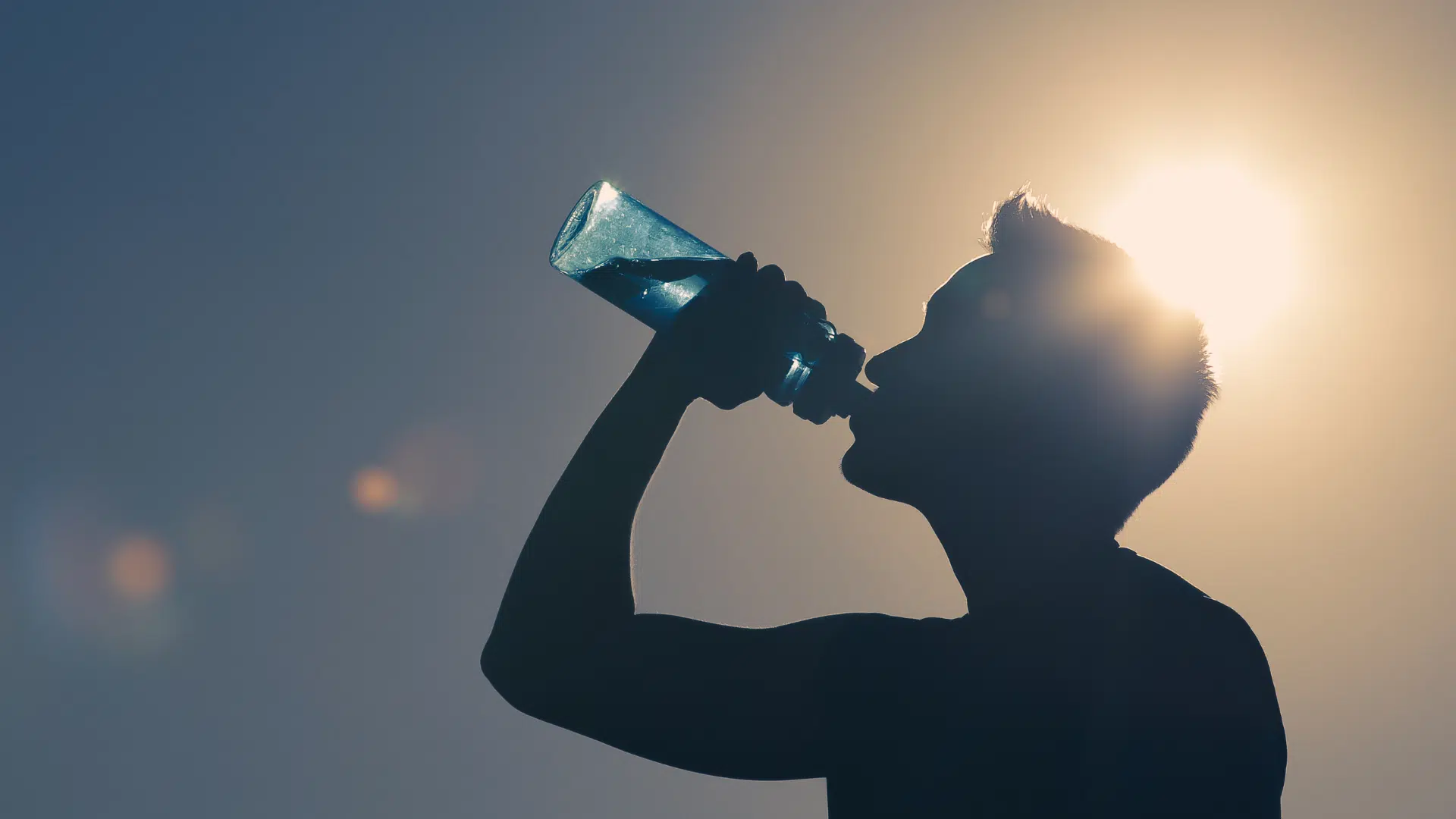As summer temperatures continue to heat up Georgetown, TX, St. David’s Georgetown Hospital is reminding the community to stay vigilant in preventing heat-related health risks.
“Wearing hats and light-colored breathable clothes, staying in the shade and drinking plenty of water are essential for preventing heat-related illnesses,” Johnathan Conner, M.D., Director of Emergency Physicians at St. David’s Georgetown Hospital, told Hello Georgetown. “Take frequent breaks and get out of the sun and into a cool area…schedule outdoor activities for cooler morning and evening temperatures, if possible.”
Staying safe in the sun is important for all ages, but special care should be taken to protect children and seniors.
“Both older adults and young children have a higher risk of heat injury, as they can’t regulate their body temperature as well as adults and older children,” Conner said. “The risk to the elderly is compounded by many common medications they may be taking, such as blood pressure medication.”
Drinking plenty of water, and occasionally working with an electrolyte replacement, he added, is important.
“Avoid drinking alcohol or liquids with excess sugar, as they can be dehydrating,” Conner said. “If you do plan to drink alcohol, it’s a good idea to drink water or an electrolyte replacement in between alcoholic beverages.”
Individuals should also know and be able to recognize symptoms of heat-related illnesses, like heat exhaustion and heat stroke.
Heat Exhaustion
“The most common heat-related medical issue we see is heat exhaustion, which is caused by a combination of dehydration and breakdown of thermoregulation, ” Conner said. “Thermoregulation is the body’s ability to maintain a normal body temperature, even when external temperatures are different. That process breaks down when the body gets so hot that it can no longer maintain a normal temperature. This is common among people who are not acclimated to the heat, but can also occur with people who work outdoors regularly when they stay out too long in the heat without taking proper precautions.”
Symptoms of heat exhaustion include flu-like symptoms (headaches, malaise, nausea and vomiting) and no longer sweating. Conner said it’s important to get some shade and drink fluids as soon as possible if you notice these symptoms. Medical treatment for heat exhaustion should be sought out for infants and the elderly.
“Be prepared to stay out of the sun for a while to take the necessary time to cool your body down,” Conner said. “Circulate air around the patient—fans are ideal, if available. Ice packs may be applied to the neck, armpits and groin, but this isn’t required unless there is concern for heat stroke.”
Heat Stroke
One of the most serious heat-related health risks is heat stroke. While less common than heat exhaustion, heat stroke can result in permanent organ injury or death.
“The main difference between heat exhaustion and heat stroke is that heat stroke includes neurological involvement,” Conner said. “If you begin to experience confusion, or seizures in addition to feeling overheated, fainting, nausea or vomiting, seek medical attention immediately.”
Additionally, anyone experiencing confusion, slurred speech, seizures, loss of consciousness or very high body temperature with skin that is either hot and dry or profuse with sweating should be concerned about possible heat stroke and should immediately seek medical attention.
Staying Safe in the Water
Water sports in the summer time should also be planned with care. While drinking water is an excellent way to prevent heat-related health issues, simply being in the water or near water doesn’t remove the risk.
“Water activities are also associated with a number of heat-related illnesses every year,” Conner said. “Folks engaged in water activities should follow the same precautions as above.”




 Business Directory
Business Directory Add Your Business
Add Your Business Job Board
Job Board Guides and Features
Guides and Features Tech Tip Tuesday with Computek
Tech Tip Tuesday with Computek Education Spotlight with Huntington Learning Center
Education Spotlight with Huntington Learning Center A+ Roofing Tips from APEX Roofing
A+ Roofing Tips from APEX Roofing Restaurants in Georgetown, TX
Restaurants in Georgetown, TX Dog Friendly Establishments in Georgetown, TX
Dog Friendly Establishments in Georgetown, TX Adopt a Pet in Georgetown, Texas
Adopt a Pet in Georgetown, Texas Holiday Guides
Holiday Guides Festival and Events in Georgetown, TX
Festival and Events in Georgetown, TX Downtown Georgetown Guide
Downtown Georgetown Guide Local Assistance
Local Assistance Churches in Georgetown, TX
Churches in Georgetown, TX Summer Camps in Georgetown, TX
Summer Camps in Georgetown, TX Swimming in Georgetown, TX
Swimming in Georgetown, TX Coming Soon
Coming Soon Events
Events Add Your Event
Add Your Event Live Music in Georgetown
Live Music in Georgetown Southwestern University Athletics
Southwestern University Athletics Newsletter
Newsletter Newsletter Archive
Newsletter Archive Subscribe
Subscribe Submit Your Photo
Submit Your Photo 2024 Georgetown's Best Awards
2024 Georgetown's Best Awards








Comments